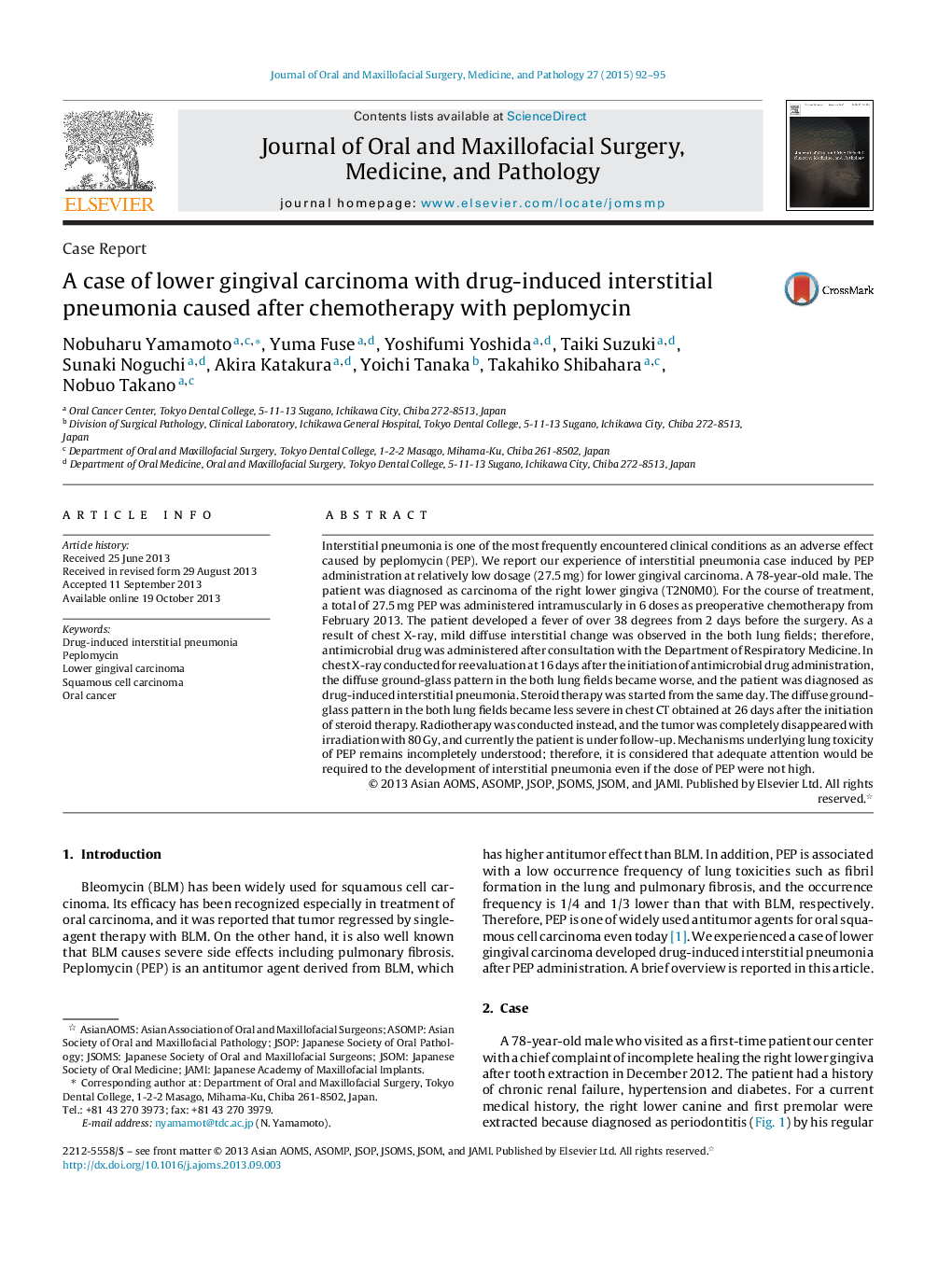| Article ID | Journal | Published Year | Pages | File Type |
|---|---|---|---|---|
| 3159819 | Journal of Oral and Maxillofacial Surgery, Medicine, and Pathology | 2015 | 4 Pages |
Interstitial pneumonia is one of the most frequently encountered clinical conditions as an adverse effect caused by peplomycin (PEP). We report our experience of interstitial pneumonia case induced by PEP administration at relatively low dosage (27.5 mg) for lower gingival carcinoma. A 78-year-old male. The patient was diagnosed as carcinoma of the right lower gingiva (T2N0M0). For the course of treatment, a total of 27.5 mg PEP was administered intramuscularly in 6 doses as preoperative chemotherapy from February 2013. The patient developed a fever of over 38 degrees from 2 days before the surgery. As a result of chest X-ray, mild diffuse interstitial change was observed in the both lung fields; therefore, antimicrobial drug was administered after consultation with the Department of Respiratory Medicine. In chest X-ray conducted for reevaluation at 16 days after the initiation of antimicrobial drug administration, the diffuse ground-glass pattern in the both lung fields became worse, and the patient was diagnosed as drug-induced interstitial pneumonia. Steroid therapy was started from the same day. The diffuse ground-glass pattern in the both lung fields became less severe in chest CT obtained at 26 days after the initiation of steroid therapy. Radiotherapy was conducted instead, and the tumor was completely disappeared with irradiation with 80 Gy, and currently the patient is under follow-up. Mechanisms underlying lung toxicity of PEP remains incompletely understood; therefore, it is considered that adequate attention would be required to the development of interstitial pneumonia even if the dose of PEP were not high.
